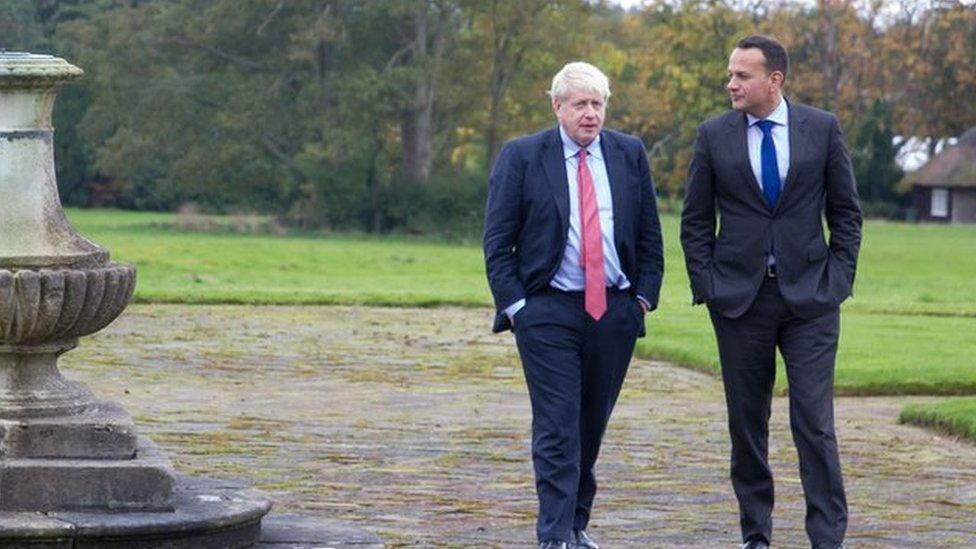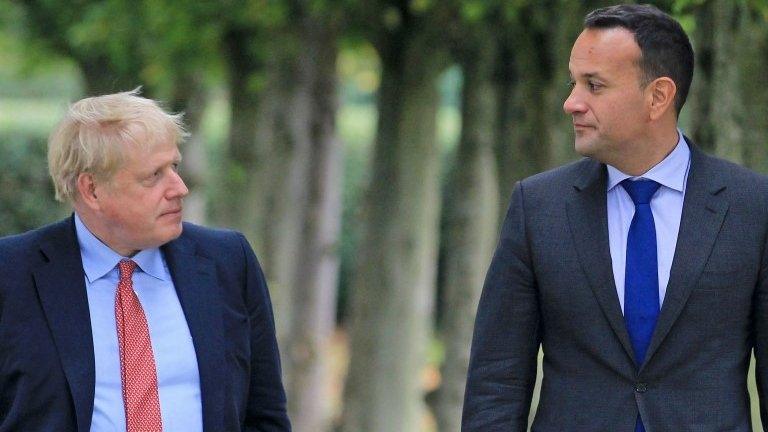Brexit: Dublin welcomes 'constructive' meeting but issues remain
- Published

Boris Johnson spoke to Leo Varadkar in the gardens of a hotel near Birkenhead
It's being described in Dublin as a "constructive" meeting, while Taoiseach Leo Varadkar has said he believes a deal can be struck by 31 October.
So has the mood music changed following the meeting between Mr Varadkar and Prime Minister Boris Johnson?
Not entirely. For one, the Irish government has said the talks on finding agreement on a Brexit deal are still at a "tentative" stage.
Meanwhile, Mr Varadkar has said there remain issues over "consent and democracy" as well as ensuring there's no customs border on the island of Ireland.
However, the taoiseach speaking of a "positive" meeting that was "sufficient to allow negotiations to resume in Brussels" feels like a step forward, no matter how small it may prove to be.
He made the comments to the press after the meeting, while Number 10 has so far remained tight-lipped beyond a joint statement issued by the two men, in which they said they "could see a pathway to a possible deal".
I understand the taoiseach and the prime minister's one-on-one meeting lasted for at least half of the three hours they were together, before officials joined them.
Sources say the two leaders' discussion concentrated on customs, Stormont consent and future British-Irish relations.
No breakthrough predictions
Conscious of the blame game, Mr Varadkar - before today's meeting - insisted that the Irish government would work until the last minute to get a Brexit deal, "but not at any cost".
The taoiseach has made it clear that he believes that the PM's proposals on a Stormont lock and Northern Ireland's membership of a UK customs union in the future pose problems in terms of avoiding a hard border on the island after Brexit.
He believes that the Stormont lock, as currently proposed, may appear to give the Democratic Unionist Party a veto.
Mr Varadkar will now brief officials in the EU task force before a meeting on Friday between EU chief negotiator Michel Barnier and Brexit Secretary Steve Barclay.
Nobody in Dublin is predicting a breakthrough or a deal before next week's European Council meeting - though that's not to say one isn't possible.
What we may be seeing is the first step in a process that may see the negotiations in effect parked until after a UK general election.
- Published10 October 2019
